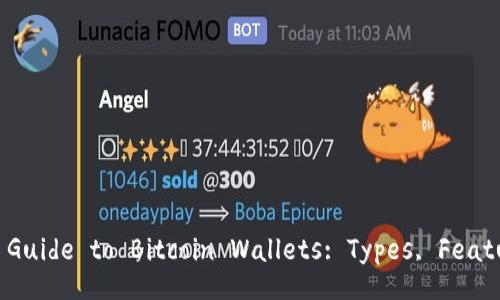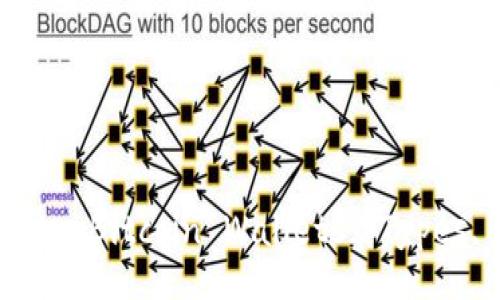随着数字加密货币的迅速发展,许多人开始关注如何安全、快速地管理他们的加密资产。USDT(Tether)作为一种稳定币...
Bitcoin, the original and most well-known cryptocurrency, has seen exponential growth since its inception. As more individuals and institutions begin to invest in Bitcoin and other cryptocurrencies, the importance of securely storing these digital assets has become paramount. This is where Bitcoin wallets come into play. In this guide, we'll explore the different types of Bitcoin wallets, their features, security tips, and much more.
### Understanding Bitcoin WalletsA Bitcoin wallet is a digital tool that allows users to store and manage their Bitcoin. Unlike traditional wallets that hold physical currency, Bitcoin wallets store private and public keys and interact with the Bitcoin blockchain to allow users to send and receive Bitcoin. There are various types of wallets available, each with distinct features and levels of security.
### Types of Bitcoin WalletsBitcoin wallets can be classified into several categories based on their security and convenience. The main types of Bitcoin wallets include:
#### 1. Software WalletsSoftware wallets are applications or programs installed on a computer or mobile device. They are convenient and easy to use but are vulnerable to malware and hacking.
- **Desktop Wallets:** These wallets are installed on a PC or laptop. They offer complete control over the wallet, allowing users to manage their Bitcoin offline. Examples include Electrum and Exodus. - **Mobile Wallets:** Designed for smartphones, mobile wallets allow users to send and receive Bitcoin on the go. Examples include Mycelium and Trust Wallet. #### 2. Hardware WalletsHardware wallets are physical devices that securely store your Bitcoin offline. They are considered one of the safest options for storing Bitcoin, as they are not connected to the internet. Popular hardware wallets include Trezor and Ledger Nano S.
#### 3. Web WalletsWeb wallets operate in the cloud and can be accessed from any device with an internet connection. While they offer convenience, they are also more vulnerable to attacks. Examples include Coinbase and Blockchain.info.
#### 4. Paper WalletsA paper wallet is a physical document that contains your Bitcoin private and public keys. Users generate a paper wallet using a secure site and print it out. This method is highly secure as it is completely offline, but losing the paper wallet can lead to a permanent loss of funds.
### Features of Bitcoin WalletsWhen choosing a Bitcoin wallet, users should consider several features, including:
- **Security:** Look for wallets that offer strong encryption and two-factor authentication (2FA). - **User-Friendly Interface:** A wallet with an intuitive interface can make managing Bitcoin easier, especially for beginners. - **Backup and Recovery Options:** Ensure the wallet provides a way to backup your keys and recover your wallet in case of loss. - **Multi-Currency Support:** If you plan to store other cryptocurrencies, consider wallets that support multiple currencies. ### Security Tips for Bitcoin WalletsSecuring your Bitcoin wallet is crucial in preventing theft or loss of funds. Here are some tips:
- **Use Hardware Wallets:** For long-term storage, consider using a hardware wallet to keep your Bitcoin offline and secure. - **Enable Two-Factor Authentication:** Always enable 2FA for an added layer of security on your online wallets. - **Keep Software Updated:** Regular updates can patch security vulnerabilities in your wallet software. - **Be Cautious of Phishing Attempts:** Always verify the URLs of wallet providers to ensure you are not being targeted by phishing scams. ### Common Questions About Bitcoin Wallets ####The safest type of Bitcoin wallet is generally considered to be a hardware wallet. Hardware wallets store your Bitcoin offline, making them less susceptible to hacking than web or software wallets. They typically have built-in security features such as PIN protection and recovery seed phrases, ensuring that only the wallet owner can access their funds. Popular hardware wallets like Trezor and Ledger provide high levels of security, but it's crucial to only purchase these devices directly from manufacturers to avoid tampering.
While software and web wallets offer convenience for daily transactions, their reliance on internet connectivity exposes users to various online threats. Therefore, if security is your top priority—especially if you hold a substantial amount of Bitcoin—investing in a hardware wallet is highly recommended. On the other hand, for small amounts meant for regular transactions, a secure software wallet might suffice.
####
Recovering a Bitcoin wallet largely depends on the type of wallet being used. For software wallets, backup procedures usually involve saving a seed phrase or recovery key. When you set up the wallet, a 12- or 24-word recovery phrase is generated. To recover your wallet, you would simply download the wallet software again, select the option to restore an existing wallet, and enter your recovery phrase. This process allows you to regain access to your funds even if you lose your device.
For hardware wallets, the recovery process is similar. Users must keep their recovery seed phrase secure and not expose it to anyone. If the device is lost or damaged, a new hardware wallet can be initialized, and the recovery phrase can be used to restore access to your Bitcoin. It's essential to write down your seed phrase and store it in a safe place, as losing it may result in permanent loss of access to your funds.
####Yes, you can store Bitcoin on cryptocurrency exchanges; however, it's generally not recommended for long-term storage. While exchanges like Coinbase, Binance, and Kraken provide convenience and allow easy buying and selling of Bitcoin, they are also prime targets for hackers. Numerous exchange hacks in the past have resulted in substantial losses for users who kept their funds stored on these platforms.
If you decide to store Bitcoin on an exchange, ensure that you enable all security features, such as two-factor authentication and withdrawal address whitelisting. However, for long-term holding or significant amounts, it's advisable to move your Bitcoin to a more secure wallet type, such as a hardware wallet, that you control entirely. This way, you reduce the risk of losing your assets due to exchange vulnerabilities or internal breaches.
####
Choosing the right Bitcoin wallet depends on several factors that align with your usage pattern, security requirements, and experience level. Start by assessing how you plan to use Bitcoin. If you are a frequent trader or require instant access, a mobile or web wallet might be suitable due to their convenience and ease of use. Ensure that the wallet has a user-friendly interface and provides strong security measures, such as 2FA.
For long-term investors who wish to hold substantial amounts of Bitcoin, a hardware wallet is the best choice for enhanced security. Evaluate the hardware wallet’s security features, backup options, and customer support before making a purchase. Look for wallets that have a solid reputation and positive customer reviews over time. Additionally, always ensure you back up your wallet and understand how to recover it in case you encounter issues.
####Most Bitcoin wallets can be downloaded for free; however, various fees may apply depending on the type of wallet and its functionalities. Software and mobile wallets typically don't charge upfront fees for installation. But they may have transaction fees for sending Bitcoin, as these fees are typically paid to miners who validate and process transactions on the Bitcoin network.
Hardware wallets, on the other hand, come with a one-time purchase cost, which can vary significantly based on brand and features. Despite the initial expense, they are an investment in security, especially for users storing large amounts of Bitcoin. Overall, while gaining access to a Bitcoin wallet may be free, users should always stay informed about potential transaction fees and hardware wallet costs in selecting the wallet that best suits their needs.
####If you lose access to your Bitcoin wallet, the ability to recover your funds primarily hinges on having your recovery seed phrase or backup information. For hardware and software wallets, keeping this seed phrase secure is paramount. If you have lost access without a backup, recovering the Bitcoin is generally impossible due to the decentralized nature of cryptocurrencies.
In the event you lose access to a wallet that has been properly backed up, it can usually be recovered by reinstalling the wallet software or acquiring a new hardware wallet. Entering the recovery seed should restore your access to the Bitcoin. To mitigate the risks of loss, it's advisable to store the seed phrase in a secure physical location and even consider using a safety deposit box.
### ConclusionAs the world embraces the digital currency revolution, understanding how to securely store and manage your Bitcoin is essential. Selecting the right type of wallet, implementing robust security measures, and being informed about wallet recovery processes are vital steps in safeguarding your investment. The landscape of cryptocurrency is ever-evolving, so staying abreast of best practices will help ensure a secure and rewarding experience in the world of Bitcoin.
### Additional InformationFor more detailed inquiries or personal guidance on selecting the best wallet for your needs, consider visiting reputable sources or forums dedicated to cryptocurrency, where you can connect with experts and experienced users.
### Call to ActionReady to embark on your Bitcoin investment journey? Start by researching Bitcoin wallets today and make an informed decision about where to store your digital assets securely!